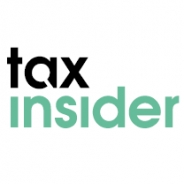
Sarah Bradford outlines some important Capital Gains Tax changes from 23 June 2010 for Tax Insider Lite.
Introduction
A rise in the rate of Capital Gains Tax (CGT) was something of a Budget certainty. However, with predictions of alignment with Income Tax rates and a possible rate of 50%, when it came the rise was not as painful as anticipated.
In relation to gains made on or after 23 June 2010, there will be two rates of Capital Gains Tax for individuals – a standard rate of 18% and a higher rate of 28%. The higher rate will apply to individuals whose total taxable income and post-22 June 2010 chargeable gains exceed the Basic Rate limit for Income Tax purposes of £37,400. Broadly, this means that Higher and Additional Rate taxpayers will pay CGT on gains realised after Budget day at a rate of 28%, whereas for Basic Rate taxpayers the rate remains at 18%.
All gains realised by individuals before 23 June 2010 are taxed at 18%, regardless of the level of the individual’s income.
Which Rate do I Apply?
When working out which rate of tax to apply for post-Budget Day gains, it is important to note that any gains realised before 23 June 2010 are not taken into account in working out whether the Basic Rate limit is exceeded. Further, both any losses for the year and the Annual Exemption, which remains at £10,100, can be used in such a way as to minimise the overall Capital Gains Tax bill.
The impact of the change in rates and use of the Annual Exemption is illustrated by the following example:
Example
Mark has a salary for 2010/11 of £30,000. He is entitled to the basic Personal Allowance of £6,475.
In May 2010 he realises a gain of £50,000 from the sale of an investment property. He makes a further gain of £100,000 from the sale a second property in July 2010. Gains made before 23 June 2010 are taxed at 18%.
In relation to gains after 22 June 2010, Mark’s total taxable income and gains for 2010/11 for the purposes of ascertaining which rate applies is as follows:
| £ | |
| Salary | 30,000 |
| Less: Personal Allowance | (6,475) |
| 23,525 | |
| Post 22 June 2010 gains | 100,000 |
| Less; Annual Exemption | (10,100) |
| Total Taxable Income & post-22 June 2010 Gains | 113,425 |
As Mark’s total taxable income and post 22 June 2010 gains for 2010/11 exceed £37,400, the portion of the July gain above this limit will be taxed at 28%. As all gains before 23 June 2010 are taxed at 18%, it makes sense to use the Annual Exemption against the July gain to save tax at 28%.
The May gain of £50,000 is taxed at 18%, giving a CGT bill of £9,000.
As regards the July gain, the chargeable gain, after deducting the Annual Exemption, is £89,900 (£100,000 - £10,100).
The portion up to the Basic Rate limit (£37,400 - £23,525), i.e., £13,875 is taxed at 18%. The remainder of the gain (£89,900 - £13,875), i.e. £76,025 is taxed at 28%.
CGT payable on the July gain is therefore:
| £ | |
| On £13,875 @ 18% | 2,497.50 |
| On £76,025 @ 28% | 21,287.00 |
| CGT on Chargeable Gain of £89,900 | 23,784.50 |
Mark’s CGT liability for the year is therefore £32,784.50, including the May gain.
Entrepreneurs' Relief
The Budget was not all bad news as far as CGT is concerned, as the Chancellor also announced a rise in the Lifetime Limit for Entrepreneurs' Relief from £2m to £5m, effective from 23 June 2010. Gains made on or after that date are taxed at 10% up to the limit. Prior to 23 June, 4/9ths of the gains up to the limit were taxed, giving an effective rate of tax of 10%.
Practical Tip
The failure to align Capital Gains Tax rates with Income Tax rates and the continued availability of the Annual Exemption means that, generally speaking, capital gains remain preferable to income for all taxpayers. Planning opportunities therefore remain.



Please register or log in to add comments.
There are not comments added